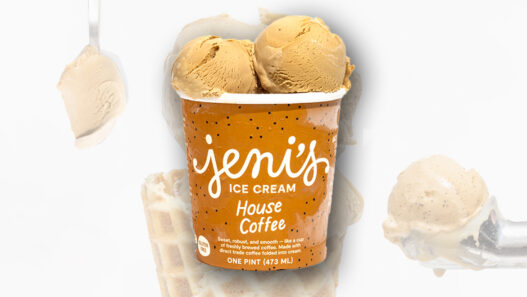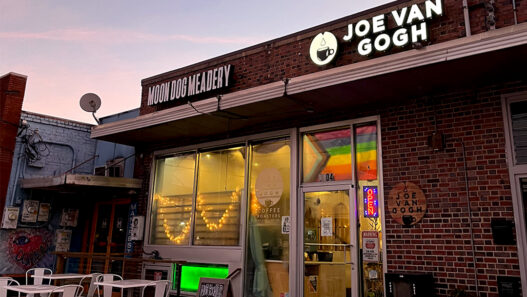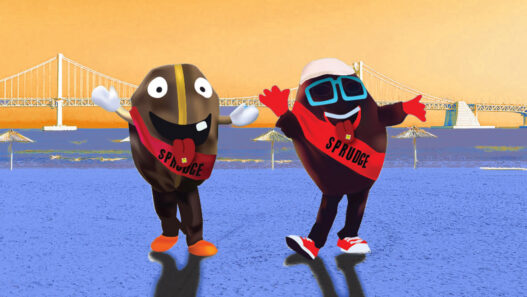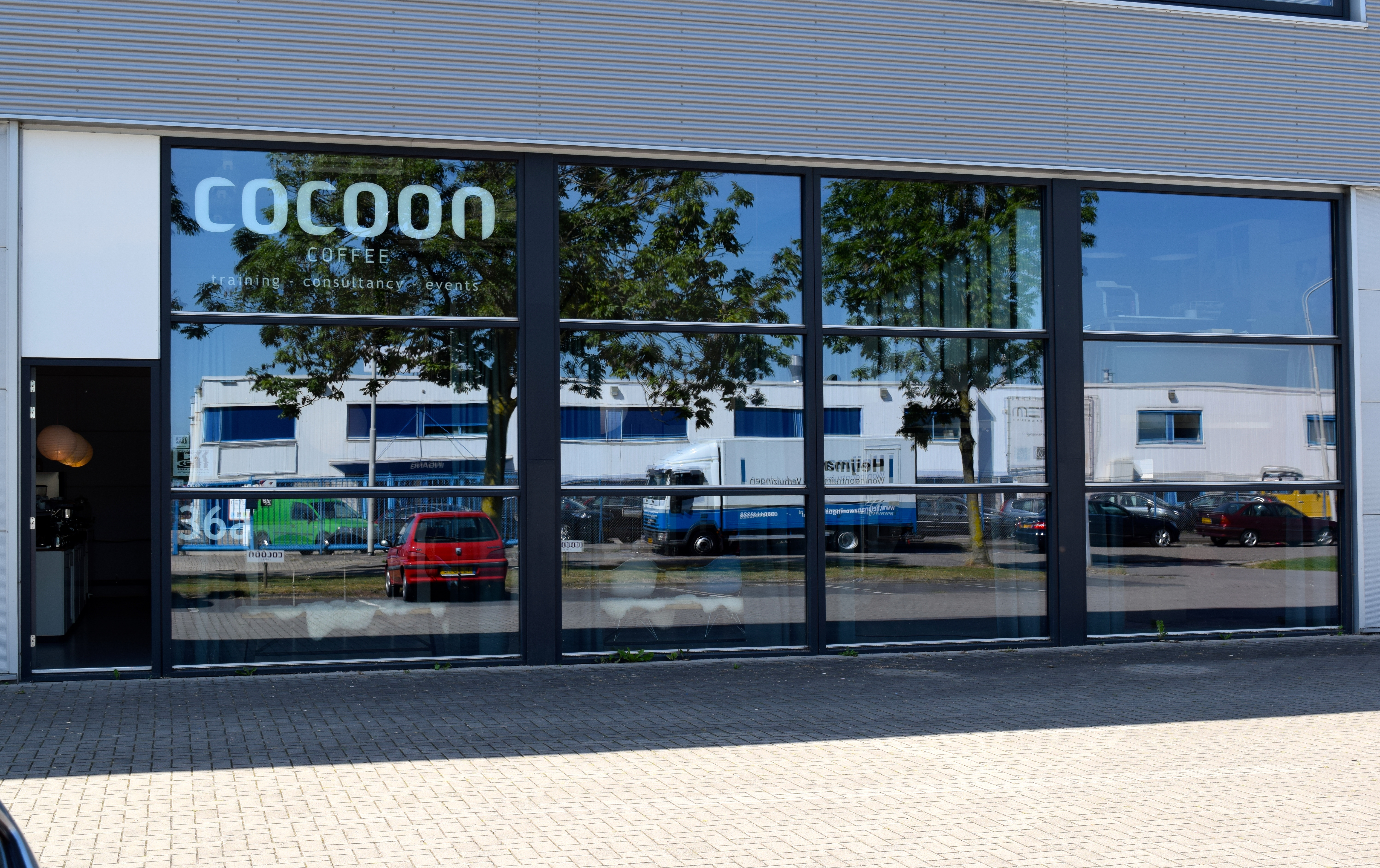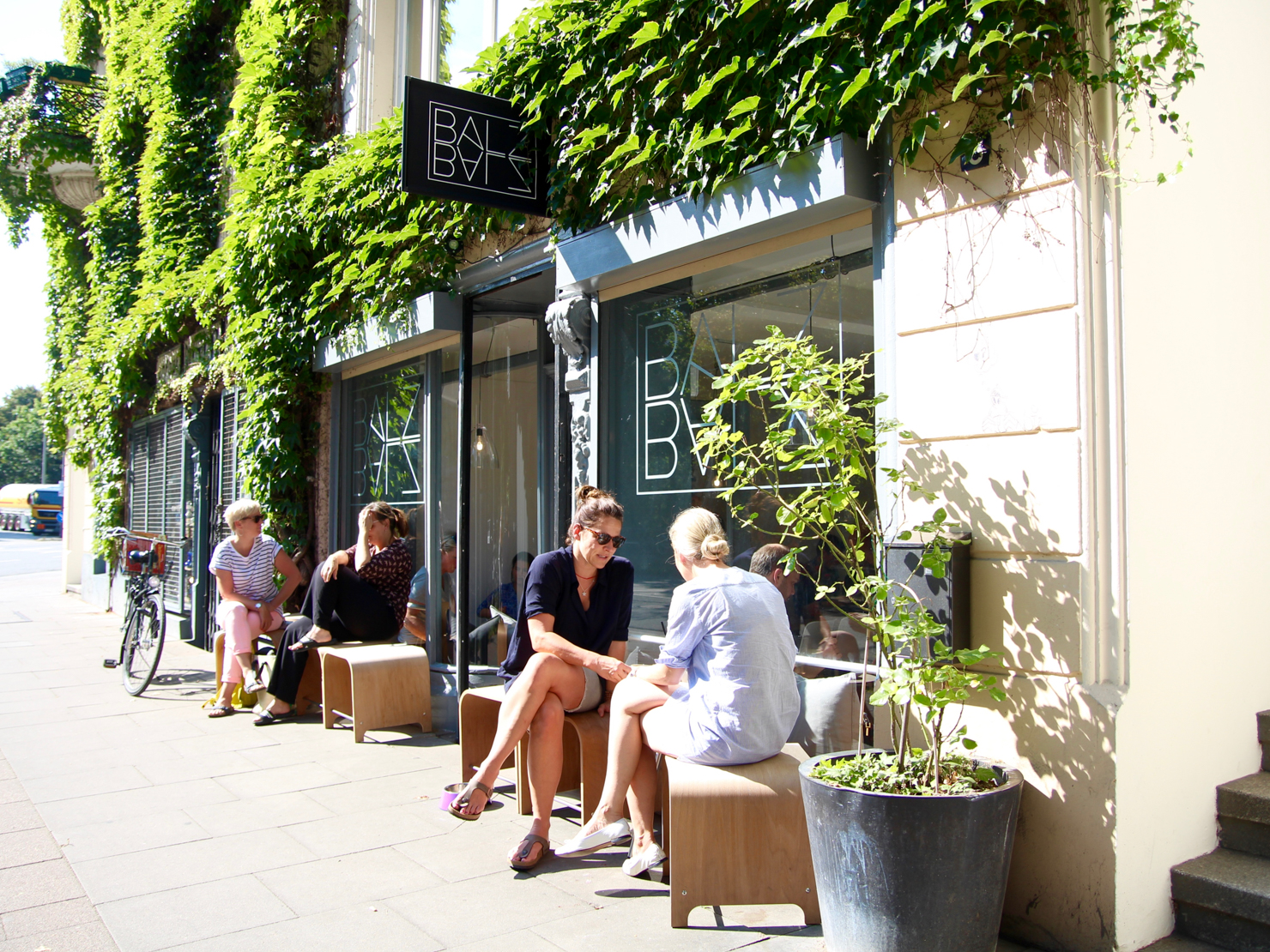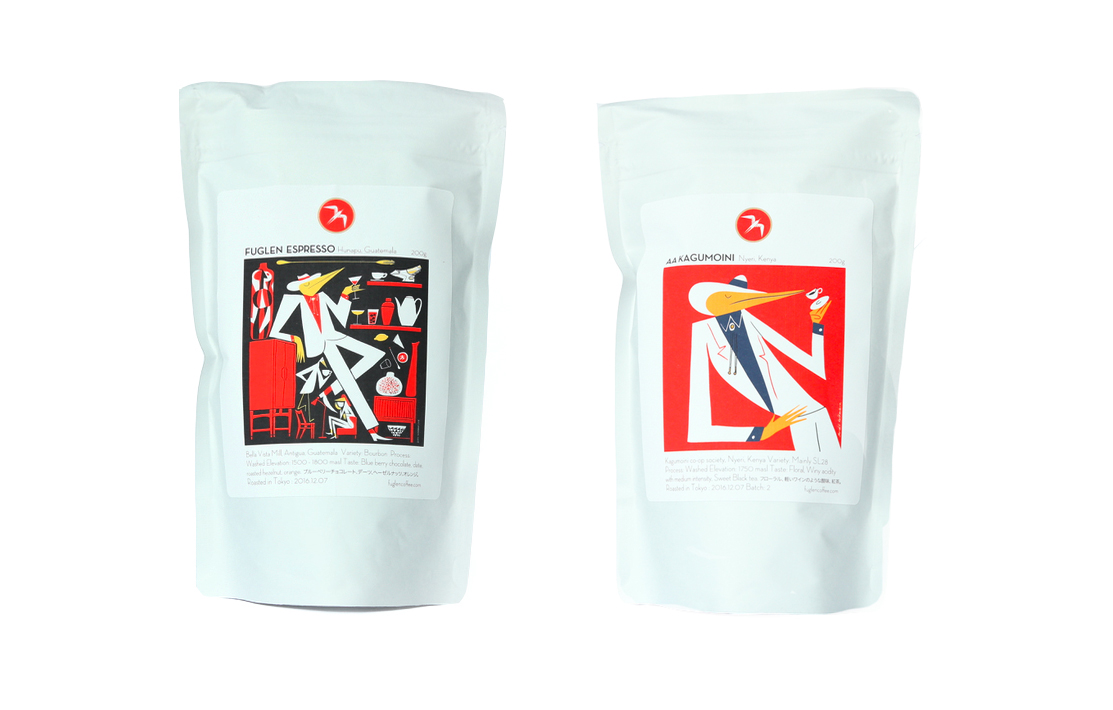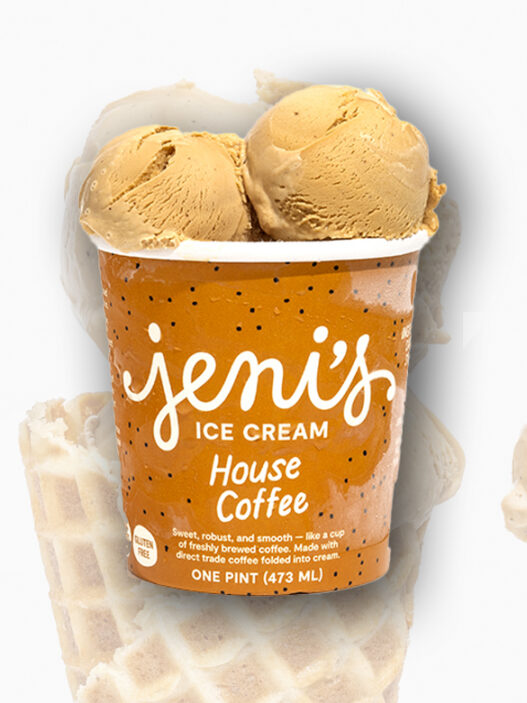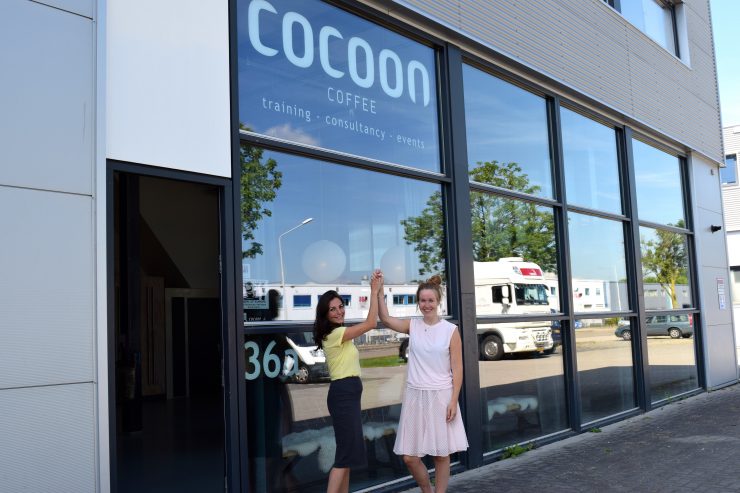
Cocoon Coffee, a training and consultancy company in the Netherlands, is eight years old, though it emerged from a far longer legacy. The devotion to the drink here is so professional and all-encompassing that it is donned not like an accessory or some seasonal ensemble, but a uniform—day in, day out, a second skin to its two wearers. Liesbeth Sleijster and Rose van Asten have spent the past decade and a half working in the Dutch coffee industry, and for several of those years, competing: In 2008, Sleijster placed third in the World Barista Championship, making her the highest-ranking Dutch barista ever and the last woman on earth to have made the top three. In 2006, van Asten finished eighth at the WBC and, later, seventh at the World Latte Art Championship and fifth in the World Cup Tasters Championship.
“It would be hard to find a Dutch duo in the coffee business who have won more awards,” writes Jasper Houtman in his Alfred Peet biography. “Pioneers,” they are called by Henk Langkemper, a 30-year industry vet whose import and distribution company, Espresso Service West, has supported various Dutch WBC competitors, Sleijster and Van Asten included.
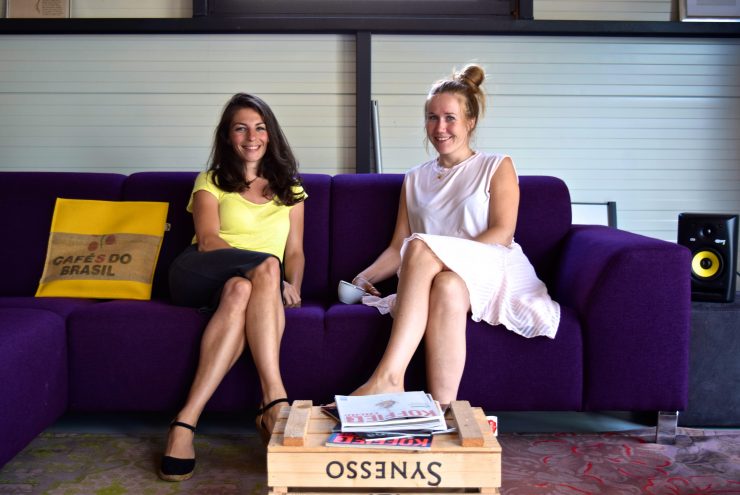
On a late summer visit to their industrial-area headquarters in the southeastern city of Nijmegen, the two Cocoon halves have just recently become a whole again: Sleijster has returned after a 16-week maternity leave. Their current projects are impressive, though it is impossible not to review the decorated past—their combined CVs list 15 championship rankings of note.
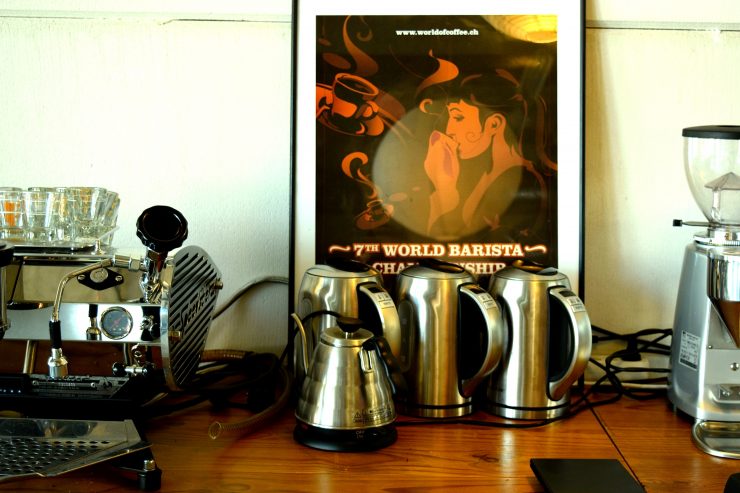
“In Holland, being competitive is already a strange thing,” says van Asten. She moved to the Netherlands after growing up in Tanzania, but easily rattles off Dutch proverbs cautioning against individualism and overambition (for example: stand too tall in the cornfield and your head gets chopped off). “Being a champion and wanting to win is not a Dutch thing,” she elaborates. “And I guess that’s even more so the case for women than men here because, in the first place, competing and winning concerns men more than it does women.”
She and Sleijster met as employees of the Blonde Pater, a Nijmegen cafe whose co-founder, the late Louis Claus, and wife Nicky Maas coached the two women, among others. Van Asten never set out to compete. She describes herself as “really shy” upon beginning at the Blonde Pater, hoping that if she made drinks better than the other server on shift, she would not have to talk to customers. “I was like, if I can just stand at that coffee machine, I don’t have to communicate,” she says, laughing at the memory.
By the time Sleijster arrived at the Blonde Pater, after coffee jobs elsewhere, she wanted to compete—though she recalls, “I didn’t dare to ask.” Claus, however, did. During her final round at the WBC 2008, with milk pitcher in hand, Sleijster stated: “In my daily life, I want to take coffee to the people. I want to give people the experience of good coffee.”
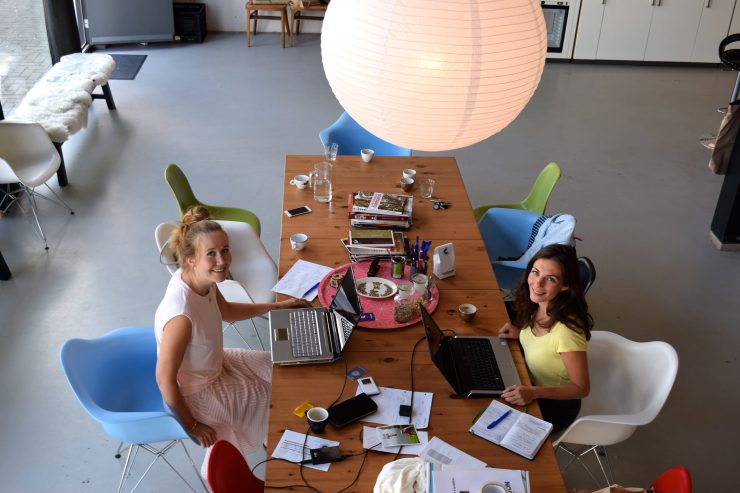
Eight years later, she and her colleague do just that. Training is Cocoon’s core business. They estimate that they teach 300 to 400 students annually, from professionals needing an SCAE-certified course to hobbyists seeking workshops. Consulting is their second major operation. Clients to whom they give technical expertise, such as on machine calibration and flavor profiling, include Brita, FrieslandCampina, and McDonald’s. The goal is to “see what kind of flavors we can get out of their coffee,” and how “close they can get to barista-quality,” says van Asten.
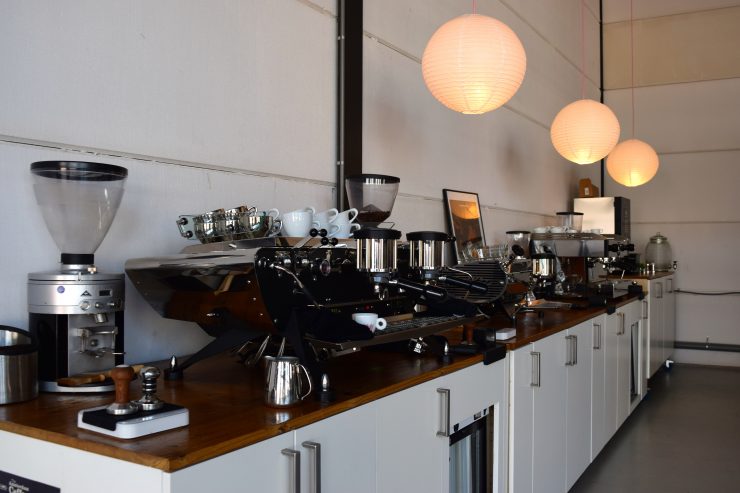
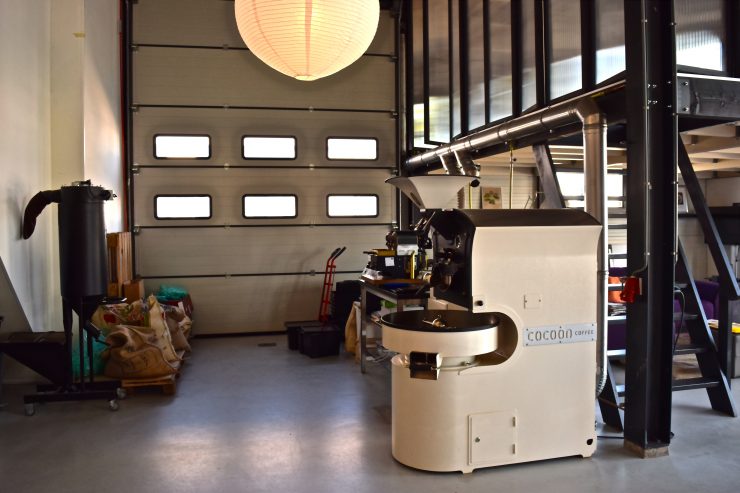
Entering Cocoon’s capacious unit, visitors are met by a row of serious machinery. A two-group Spirit and a Speedster by Kees van der Westen and a La Marzocco two-group Linea PB share space with five grinders: a Mahlkönig K30, one Mini, and two Kony models by Mazzer, plus a vintage Macap manual. The premises feel corporate—customized signs reserve parking spots outside—yet comfy. Shutter-like slats that wall a lofted office alcove can be closed for privacy, which proves convenient when, for example, having to express milk for an infant.
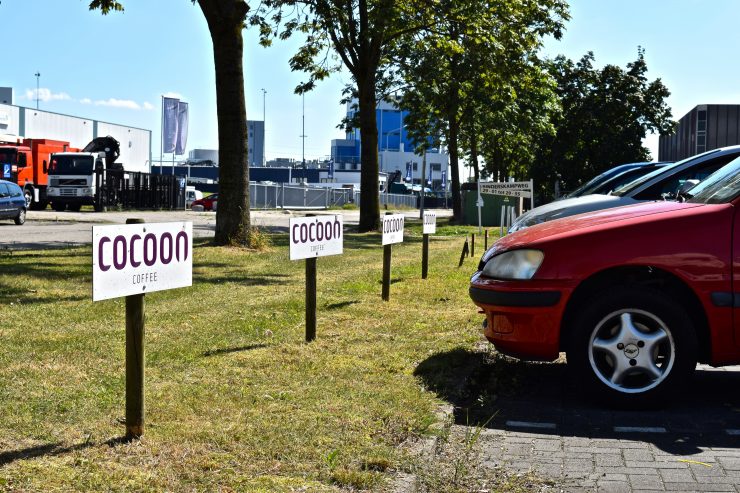
Van Asten, 37, has three children, and Sleijster, 35, has two. The way the women sometimes talk over each other ends up being conversational masonry: as one is laying down ideas, the other is mortaring in the details. Unsurprisingly, their self-reported reputation as instructors is “really good but they’re really strict,” according to van Asten.
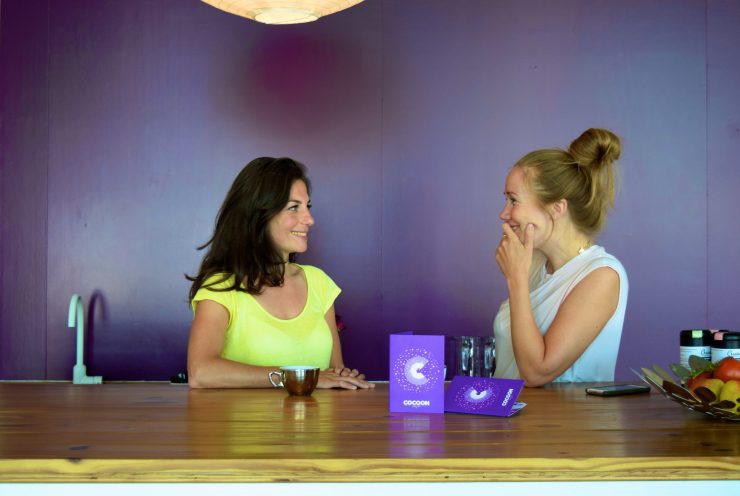
This past fall, Cocoon started offering classes in brewing. This year, the company hopes to expand its curriculum to include roasting—something they do now in small batches on a Giesen W6A (Cocoon’s website offers an espresso-subscription service)—and an entire program that awards participants an SCA Coffee Diploma.
Asked if they might compete again, the two are wistful but resolute. “It’s a lingering thought that we just push away most of the time,” says van Asten. “It’s so much work, and Cocoon is so much work, and our family is so much work.”
“It’s not our focus anymore,” Sleijster adds. “So it’s a nice idea, and I would love to because I have so many ideas, but I’m also curious in what place I would end up—as a woman.”
Van Asten picks up the thread. “My reason would be for a female to win, and not [to be] the creator of the best coffees. And I feel if you want to be a world champion barista, you should be going as a barista, and not only to make a point, as a feminist thing…although it’s still a very good reason.”
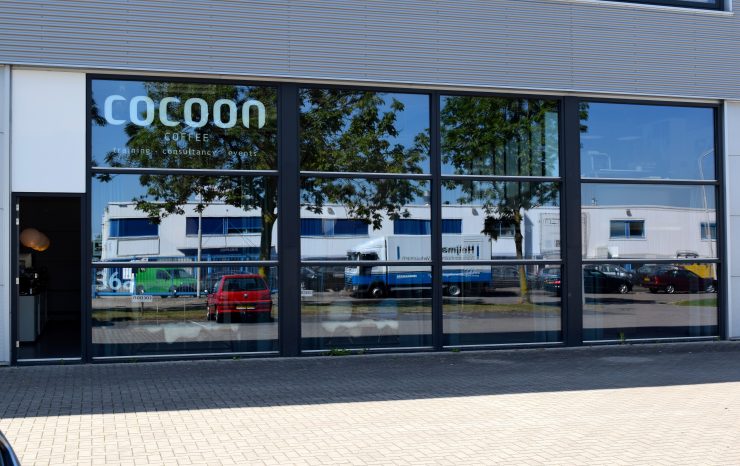
Instead, they foresee another role. “We could be part of a team to help and support a female barista who gets to compete in the WBC,” van Asten says. “So, hey, female baristas, if you really wanna win…”
She does not finish the sentence, but the call to Cocoon is clear.
Karina Hof is a Sprudge staff writer based in Amsterdam. Read more Karina Hof on Sprudge.




